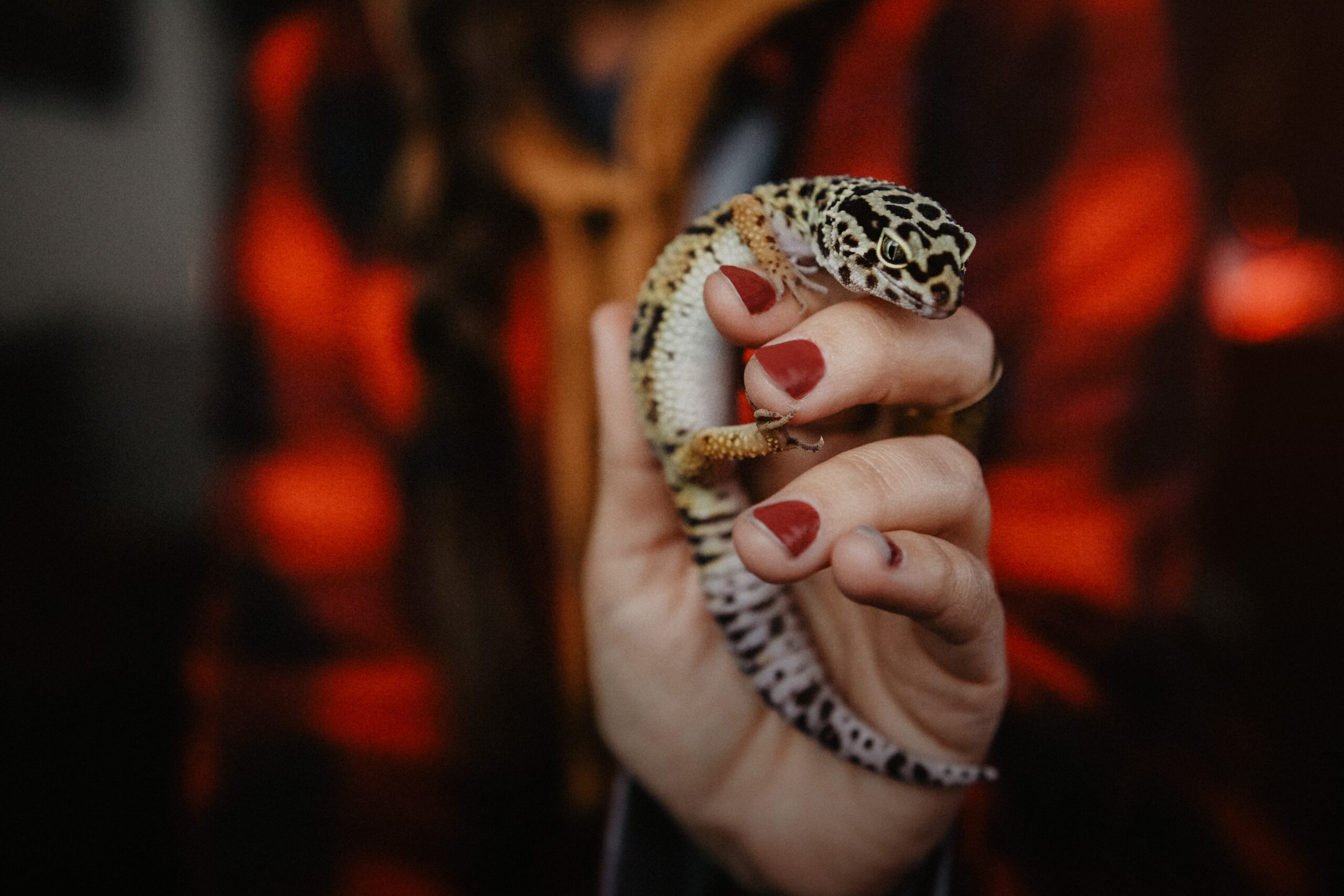We believed we were born god because we still had our Mongolian spots and this meant we were survivors of divine ass-whooping. Because we were naughty and unbraided our umbilical cords in the womb, grew teeth before we knew to eat, piloted our mother’s dreams into the territory of terror so frequently that they woke wanting to yank us out with their own bare hands, a god booted us extra-hard out of our mothers’ wombs, kicking our asses into orbit, bruising them into planets, staining their heels blue too, and because our spots never flipped like coins, never assimilated into the rest of our skin, never tilled themselves back to brown, we would never be the girls who became women. We would never wed men and matter to their mouths. We were fortressed outside our futures.
We worked minimum-wage at a pet store where she taught me how to hypnotize the lizards by finger-stroking their bellies, how to seduce the parakeets so that they’d perch on our tongues and sing from our mouths, how to thaw out the mice before feeding them whole to the snakes. How to euthanize a fish by slapping its head against a flat surface, a countertop or the sidewalk or our chests. When we were ten, I called her Saliva Li even though her name was Sylvia Li. It was because her mouth was always loose as a hammock, her tongue swinging like an udder, spit curdling into milk. When she was eleven and moved back to Miaoli for a year, she asked me to take care of her dog because no one else would, because she stole it from the pet store after it bit an employee’s ear off – we were still waiting for the ear to pass through its intestines because there was a gold earring threaded through it and we wanted to pawn it hot. After the biting incident, the dog was going to get put down, but Saliva saved it. She smuggled it out between her thighs, almost broke its neck by choking it. Now she said she only trusted me to take care of it – I was the only one whose Mongolian spot was stapled on, and this meant we were sister stains, we were girls mothered by mutts.
The dog was breedless, blue-assed like its owner, and one day when I was at school, my brother and my cousin strung it up in a tree and stuck firecrackers down its throat and lit a match and all that was left was half the tree, some smoke. I found the earring, too, the gold one shaped like a scallop, its pearl alive as an eye, rolling back in my palm. I wore it through my tongue, taught myself to bark, but no one was convinced that the dog had gone missing inside me. When she came back, taller and with an accent, Sylvia never forgave me, even after I gifted her the last limb of the orange tree in a garbage bag, even after I pissed on my brother’s pillow, even after I told her I’d let her do anything to me. Anything? she asked, and I said yes, anything, so she told me to nick off my Mongolian spot with a knife. She told me we were no longer allied by our shadows, our forfeited futures, our backside moons, mine green, hers blue.
The day of my skinning, the sun swung like a pendant around the sky’s blue neck. Painless, she told me, though neither of us believed it. It’ll be like taking off your clothes. She flipped me over on the bed, doused the spot in rice vinegar. I pretended to be asleep while she pulled off my pants. It was a good dog, the one she left me. It chased the crows away from the roadkill and slept between my legs at night and never killed a single one of my grandmother’s hens, though it ate a few of the blank CDs we taped to the fence to scare hawks away from our flock. Predators are the ones most afraid of their own face. When the dog used to swallow, one of the CD shards shredded open its throat, letting down its blood, and my mother had to reach into its mouth like a sleeve and sew the gash shut. After that, it couldn’t really bark, which is why no one heard it get strung up in the tree. I remember the silver bits we fished from its throat, so much rain. Sylvia’s knife nosed against my tailbone, paused. Silvered my skin. But instead of flaying the spot, she stroked it with her thumb until the color came off, bluing her fingers, slurring her touch into a god’s.
—
K-Ming Chang / 張欣明 is a Kundiman fellow, a Lambda Literary Award finalist, and a National Book Foundation 5 Under 35 honoree. Her debut novel Bestiary (One World/Random House, 2020 and Harvill Secker/Penguin UK, 2021) was longlisted for the Center for Fiction First Novel Prize and was named a New York Times Book Review Editors’ Choice. More of her writing can be found at kmingchang.com.
Photography by: Macey Bundt
